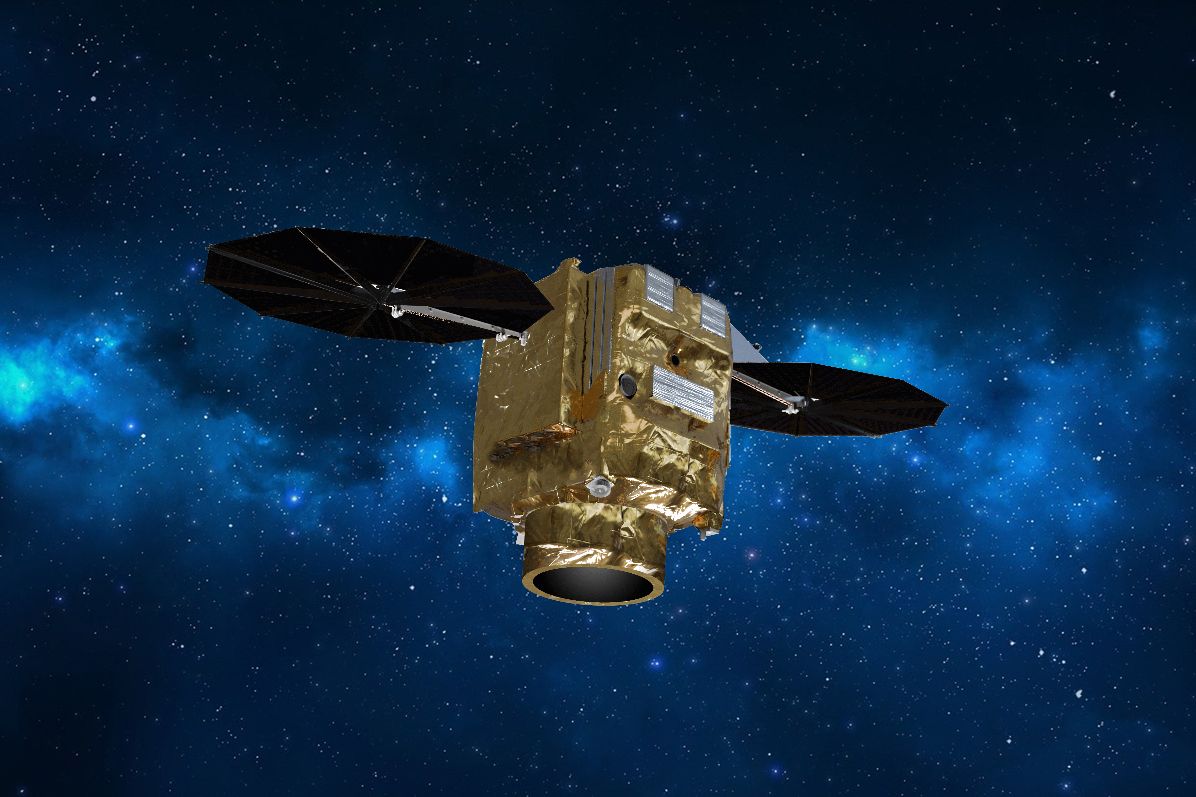Arianespace to launch Vega rocket on return-to-flight mission tonight. Here's how to watch.
Liftoff is at 9:50 p.m. EDT (0150 GMT).
A Vega rocket is scheduled to launch a new Earth observation satellite and several other small payloads into orbit for a return-to-flight mission tonight (April 28), and you can watch it live online.
The European launch provider Arianespace is targeting a 9:50 p.m. EDT (0150 April 29 GMT) liftoff from the Guiana Spaceport near Kourou, French Guiana. You can watch the launch live here on Space.com, courtesy of Arianespace, or directly via the company's YouTube.
The mission, which Arianespace has dubbed VV18, will be the 18th Vega mission and the first one since a Vega launch failure in November, in which satellites for France and Spain were lost.
Related: Meet Ariane 6 and Vega C: Europe's new 'rideshare' rockets (videos)

Riding to orbit atop the Vega rocket will be an Earth observation satellite called Pléiades Neo 3, the first of four Earth observation satellites for a new satellite constellation built and operated by the German aerospace company Airbus Defence and Space. The second satellite, Pléiades Neo 4, is scheduled to launch in June, followed by Pléiades Neo 5 and Pléiades Neo 6 in 2022, which will complete the constellation.
"With 30 cm [12 inches] resolution, best-in-class geolocation accuracy and twice-a-day revisit, the four Pléiades Neo satellites unlock new possibilities with ultimate reactivity," Arianespace officials said in a mission description.
Five secondary payloads will hitch a ride to orbit with Pléiades Neo 3. The rideshare payloads include the Norwegian Space Agency's NorSat-3 radar detector for maritime navigation, a nanosatellite called "Bravo" for Aurora Insight, two Lemur-2 weather and ship tracking satellites for Spire and Eutelsat's Tyvak-182A satellite (also known as Eutelsat ELO alpha).
Get the Space.com Newsletter
Breaking space news, the latest updates on rocket launches, skywatching events and more!

Stakes are high for tonight's return-to-flight mission. Vega rockets have suffered two recent failures after a streak of 14 successful missions between 2012 and 2019. The first Vega failure happened in July 2019, when a motor issue led to the loss of the United Arab Emirates' Falcon Eye 1 satellite. Vega successfully returned to flight in September 2020, launching 53 satellites to orbit. Then the next launch after that ended in failure, just two months later.
Since the rocket's debut in 2012, Vega has launched a total of 17 missions, with 15 successes and two failures. The VV18 mission will be the 18th Vega launch and the first Vega launch of the year. It will be Arianespace's third launch of the year, following two OneWeb missions that launched on Soyuz rockets.
Email Hanneke Weitering at hweitering@space.com or follow her on Twitter @hannekescience. Follow us on Twitter @Spacedotcom and on Facebook.
Join our Space Forums to keep talking space on the latest missions, night sky and more! And if you have a news tip, correction or comment, let us know at: community@space.com.

Hanneke Weitering is a multimedia journalist in the Pacific Northwest reporting on the future of aviation at FutureFlight.aero and Aviation International News and was previously the Editor for Spaceflight and Astronomy news here at Space.com. As an editor with over 10 years of experience in science journalism she has previously written for Scholastic Classroom Magazines, MedPage Today and The Joint Institute for Computational Sciences at Oak Ridge National Laboratory. After studying physics at the University of Tennessee in her hometown of Knoxville, she earned her graduate degree in Science, Health and Environmental Reporting (SHERP) from New York University. Hanneke joined the Space.com team in 2016 as a staff writer and producer, covering topics including spaceflight and astronomy. She currently lives in Seattle, home of the Space Needle, with her cat and two snakes. In her spare time, Hanneke enjoys exploring the Rocky Mountains, basking in nature and looking for dark skies to gaze at the cosmos.









